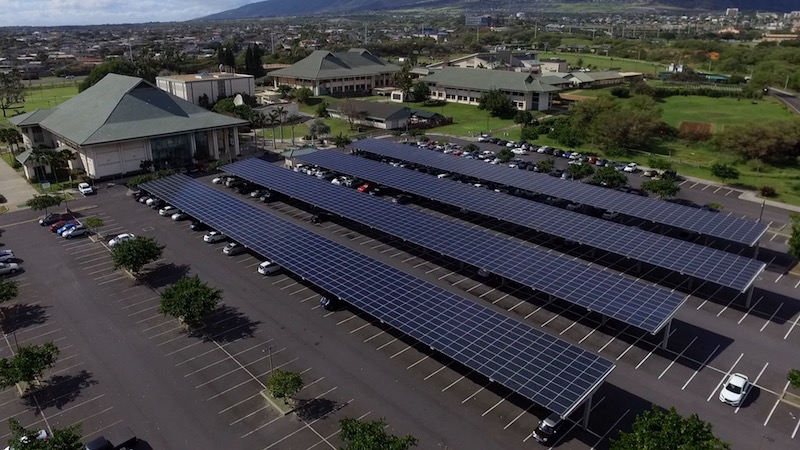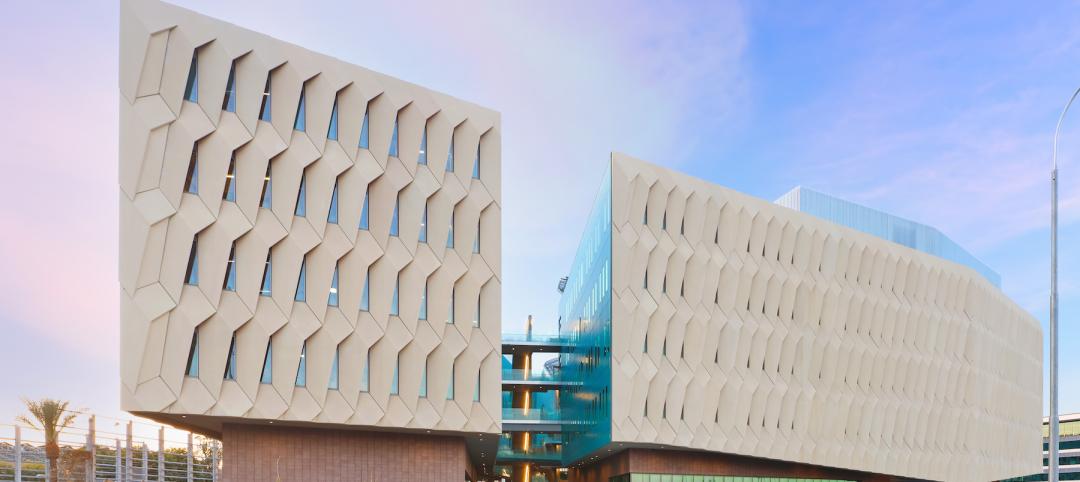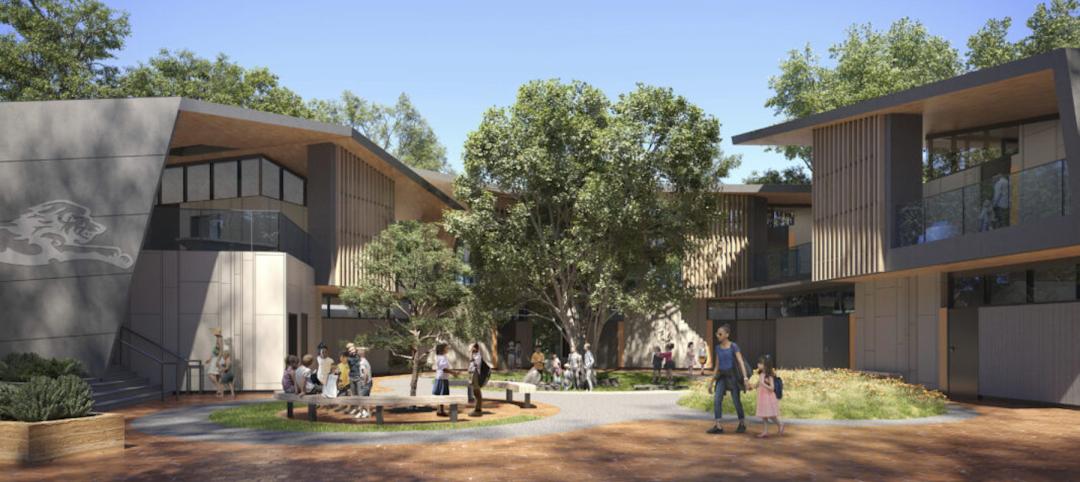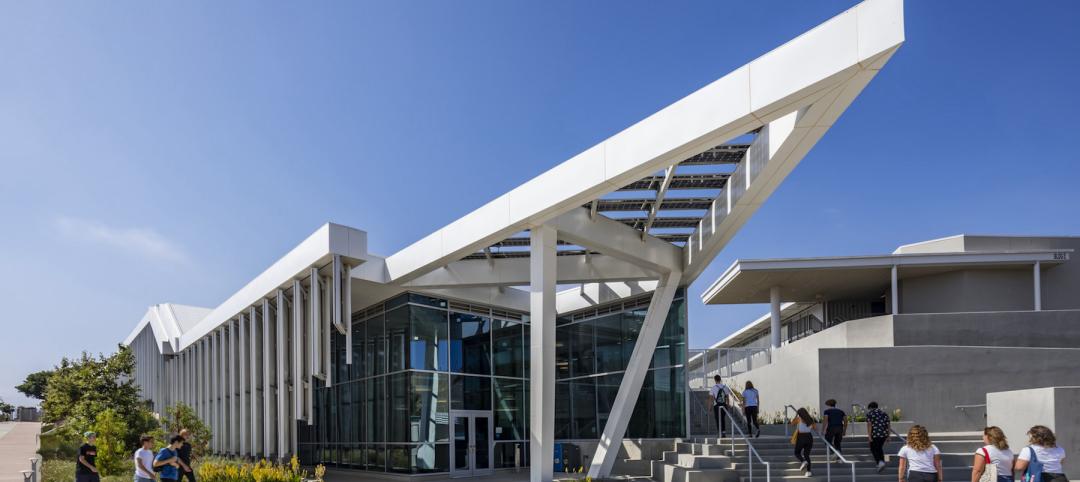In 2015, the University of Hawaii (UH) and the Hawaii Legislature established a goal for the UH university system to be net-zero by Jan. 1, 2035. Of all the campuses in the UH system, the University of Hawaii Maui College is on target to be the first to supply 100% of its energy needs through on-site photovoltaic systems coupled with battery storage, and it will do so 16 years ahead of schedule.
When it becomes operational in 2019, the UH Maui College PV plus storage system will be able to eliminate the campus’s fossil fuel-based energy use. The project is part of a partnership with Johnson Controls and Pacific Current and is currently in its second phase. Phase one saw the implementation of energy efficiency measures at UH Maui College and across all of the UH campuses. Phase two includes additional energy efficiency upgrades and the installation of the on-site solar PV coupled with battery storage.
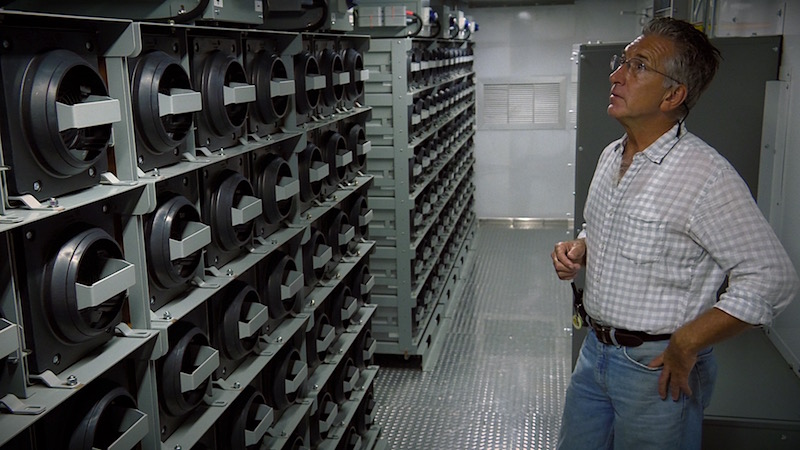 UH Maui College Physical Plant Manager Robert Burton looks at battery array. Photo courtesy University of Hawaii.
UH Maui College Physical Plant Manager Robert Burton looks at battery array. Photo courtesy University of Hawaii.
Phase two will bring the total on-site capacity to 2.8 MW of solar PV and 13.2 MWh of battery distributed energy storage at UH Maui College. Phase two will reduce the fossil fuel energy consumption across all of the five UH campuses by ~14 GWh annually (45%) and add ~13 GWh renewable energy generation.
By the end of phase two, the UH Oahu campuses will reduce their use of fossil fuel for energy by 98% (Leeward Community College), 97% (Honolulu Community College), 74% (Kapi’olani Community College), and 70% (Windward Community College).
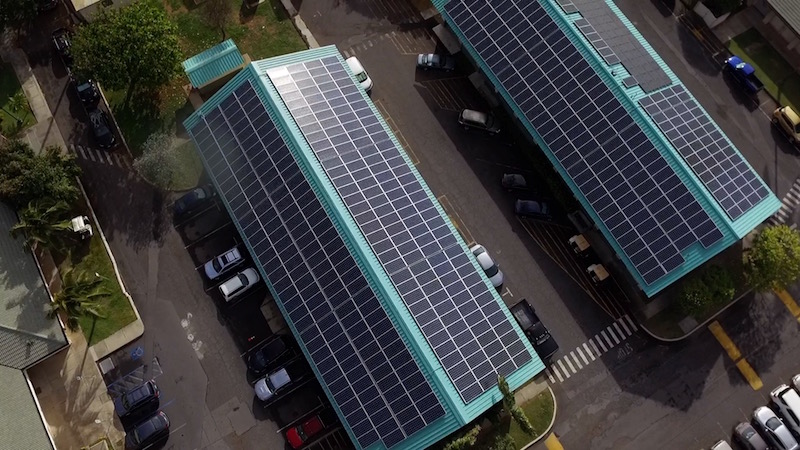 Photo courtesy University of Hawaii.
Photo courtesy University of Hawaii.
Related Stories
Legislation | Aug 5, 2022
D.C. City Council moves to require net-zero construction by 2026
The Washington, D.C. City Council unanimously passed legislation that would require all new buildings and substantial renovations in D.C. to be net-zero construction by 2026.
Sponsored | | Aug 4, 2022
Brighter vistas: Next-gen tools drive sustainability toward net zero line
New technologies, innovations, and tools are opening doors for building teams interested in better and more socially responsible design.
Sustainability | Aug 4, 2022
To reduce disease and fight climate change, design buildings that breathe
Healthy air quality in buildings improves cognitive function and combats the spread of disease, but its implications for carbon reduction are perhaps the most important benefit.
K-12 Schools | Aug 1, 2022
Achieving a net-zero K-12 facility is a team effort
Designing a net-zero energy building is always a challenge, but renovating an existing school and applying for grants to make the project happen is another challenge entirely.
Codes and Standards | Jul 29, 2022
Few projects and properties are being built beyond code
Clients and architects disagree on how well building to code provides resilience, according to a recent report by the American Institute of Architects (AIA) in partnership with Owens Corning.
Multifamily Housing | Jul 26, 2022
All-electric buildings – great! But where's all that energy going to be stored?
There's a call for all-electric buildings, but can we generate and store enough electricity to meet that need?
Concrete | Jul 26, 2022
Consortium to set standards and create markets for low-carbon concrete
A consortium of construction firms, property developers, and building engineers have pledged to drive down the carbon emissions of concrete.
Green | Jul 26, 2022
Climate tech startup BlocPower looks to electrify, decarbonize the nation's buildings
The New York-based climate technology company electrifies and decarbonizes buildings—more than 1,200 of them so far.
Education Facilities | Jul 26, 2022
Malibu High School gets a new building that balances environment with education
In Malibu, Calif., a city known for beaches, surf, and sun, HMC Architects wanted to give Malibu High School a new building that harmonizes environment and education.
Codes and Standards | Jul 22, 2022
Office developers aim for zero carbon without offsets
As companies reassess their office needs in the wake of the pandemic, a new arms race to deliver net zero carbon space without the need for offsets is taking place in London, according to a recent Bloomberg report.


